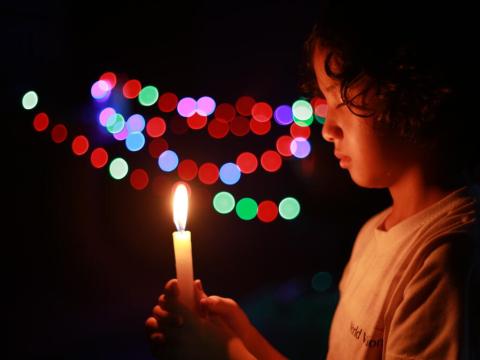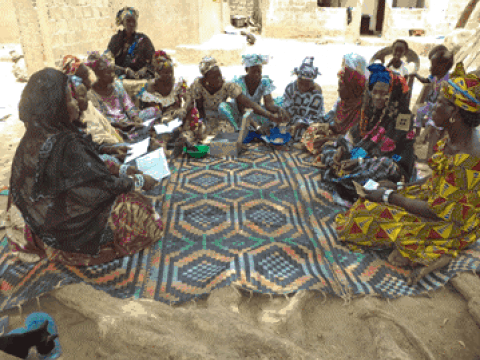
Faith groups pledge Advent Hope for refugee children
Andrea Kaufmann of World Vision International reflects on the importance of hope and faith-sensitive mental health and psychosocial support especially as more children are displaced and made refugee by climate and conflict.
The Global Refugee Forum occurred at a time where we, in the Christian tradition, are in the season of Advent. For us, Advent represents a season of hopeful anticipation. We look ahead towards Christmas, the celebration of the birth of Christ—a transformational event that has shaped human history.
But, what does it mean to hope in the face of a world where more than 70 million children are on the move[1] —experiencing incredible and increasing levels of violence, displacement, hunger and despair?
How do we cultivate hope when we know these very adverse childhood experiences are correlated with negative health, education, employment and mental health challenges that will shape many of these children for their entire lives.[2]
I find myself joining the world in groaning in eager longing for peace, for justice, for hospitality for children on the move. And yet, we know that we can take actions to alter the trajectory of these children’s lives.
We can and must strengthen formal and informal systems and structures to build resilience. It will require that we draw on the strengths and expertise from all parts of society—including the deep hope often found in faith practices and communities.
Spirituality as a source of healing and resilience for children on the move has been documented as an effective asset across many different faith communities and cultures.[3] Research has shown that when children have access to appropriate cultural and spiritual supports in times of crisis, this can lead to improvements in mental and physical health.[4]
Faith communities are often on the move with children. While children and communities may leave essentially everything behind, their faith generally travels with them. We know faith practices and communities can be essential emotional and psychosocial support.
Often, however, misunderstanding, personal preferences or previous experiences stand in the way of effective collaboration between faith communities and Mental Health Psychosocial Support (MHPSS) professionals.
In the last several years, however, these groups have been coming together in new, innovative ways—building on decades of research and work. This collaboration brings me great hope. Hope deeply rooted in my own Christian faith and trust that God is at work in the world and in the lives of these children.
Hope lived out in the actions of governments and civil society organisations making pledges under the umbrella of the Health & MHPSS Multi-stakeholder Pledge at the recent quadrennial Global Refugee Forum 12-15 December, representing many entities making a public commitment to take action.
I see hope uniquely reflected in the work of the Faith Action for Children on the Move network pledging this week a bold and targeted response to promote, strengthen and develop evidence-based approaches to ensure children on the move have access to MHPSS services that respond to their particular needs, desires and context.
Andrea Kaufmann is World Vision’s Senior Director, External Engagement, Faith and Development. Contact her at andrea_kaufmann@wvi.org


